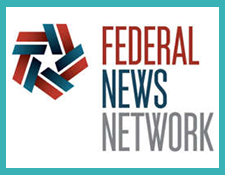
It’s showtime! Are you ready? You better be. Did you know statistics show that 33% of bosses know within the first 90 seconds of an interview whether they will hire someone? Yikes. The number one strategy for interview success is preparation. Being well prepared takes some work on your part, but you will feel far better in the hot seat coolly sharing your answers to those oh-so-tough questions.
Here are 5 things you need to know before an interview:
1. Examples of your achievements. Behavioral interviewing is the #1 technique used by employers, so get your answers ready. “Tell me about a time when you worked with a difficult co-worker and how you handled it.” (Gulp, which one? So many to choose from.) OR “Tell me about your greatest career accomplishment over the past 12 months” (Oh no….do I even have one?!) If these questions incite panic, you are not prepared. Identify 4-5 of your greatest career achievements (I know you have at least that many) and deconstruct them using these questions: What was the task? What was the action you took that generated a positive result? What was that result? Now you have 4-5 examples that demonstrate results, tell your story, and you can recall them when answering tough interview questions.
2. How to use your examples: Let’s take this very basic, open-ended question: “Tell me about a time when you dealt with conflict.” Here is an example of a good answer: “I once worked with a co-worker whose style of communication was very different from mine. She was highly extroverted, and I am somewhere in between an extrovert and an introvert. Whenever I would contribute my ideas during our weekly team meetings, I found myself being quieted by her interruptions as she put the focus back on herself. I was getting increasingly frustrated that I was unable to finish a sentence at our meetings and we had a critical deadline looming. Her constant interruptions were also derailing our project goals and our team meetings became less and less productive. I decided to speak with her one-on-one, and the first thing I did was get to know a little bit more about her. She was new at our organization, and although she talked a lot, I actually did not know a lot about her. I learned that she felt rather isolated in her new role, and she tended to talk more when she was nervous. I told her how I could appreciate that, and asked her if she could observe more and wait to hear from all of us (including me) so that ideas were heard by all. The result was immediate; she limited the amount of time she spent talking, and our meetings improved, and so did our team motivation. We completed our project under deadline, and most interesting of all, she had a lot of valuable input, we just couldn’t hear it since we were all starting to tune her out.”
This example could also be used to answer several other questions: “Tell me about a time when you had to deal with a difficult co-worker”, “Have you handled a difficult situation?”, “Share a rewarding team experience.”
3. What non-verbal cues you are sending. Remember that statistic on being negatively or positively assessed in the first 90 seconds? No doubt your non-verbals are speaking loud and clear: A “deer in the headlights” look on your face, a limp handshake, lack of eye contact, wiping down sweaty palms, jiggling your leg, hunching over….the list is long. Non-verbals make a huge impression and can be quite distracting. Most damaging? They can be responsible for making or breaking that critical, can’t-get-back first impression. By becoming aware of your non-verbal cues you can minimize them. Begin by simply increasing your awareness: Ask someone to interview you and give you feedback. Additionally, you could video tape a mock interview performance. What you learn will not only help you minimize your non-verbals, it will also improve your performance.
4. How to answer the question: “Do you have any questions for me?” Interviewers like questions, and it demonstrates your interest in the job and the organization, and allows you to continue your conversation with your interviewer. Here are a few you can use: “What makes a successful candidate? What would make an unsuccessful candidate? What is the most challenging part of this job? What is a typical day like?” For more great questions straight from HR, go to Interview Tips to Help You Win the Job (Love, HR)
5. Why it’s important to relax – and be yourself! If you are trying to be someone you are not, you will most likely stumble early in your interview – and often – until it is over. Let’s use the extroverted team member in the example above. If this extrovert decides to sit quietly waiting for the next question to be asked and portrays herself as reserved, something “off” will show up. In other words, the interviewer might pick up on a lack of authenticity vibe. By acting this way, this extrovert is probably leaving out her innate warmth or ability to easily connect with the interviewer in her own natural way. As my friend and colleague Chloe says so well: “Be yourself! Let your personality come through so your interviewers get a sense of who you are. If the interviewers don’t mesh with you personally, it’s better for all concerned to find that out during the interview rather than on the first day of employment. And remember—they’re not the only ones with decision-making power. You’re interviewing them too.”
Many of us will have only a handful of interviews in our lifetime. Some will have more. If you think about it, interviewing is really not something we do often, which is why preparing for these limited opportunities can help us knock them out of the park. Or at least walk away knowing we did our very best.
Ready to prepare for your next interview? Book an appointment today at ellen@traversesolutions.com

